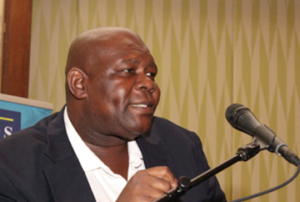By Lincoln DePradine

Caribbean economies, which declined last year due to the COVID-19 pandemic and now are trying to recover, must focus on agriculture and on producing food to feed their nations’ people, economist Dr. Brian Francis has suggested..
“In the time of COVID, if there’s one sector in an economy that should be ‘kicking with gas,’ it should be agriculture,’’ said Francis, a former University of the West Indies (UWI) lecturer.
He was a presenter at an online forum on Saturday marking the occasion 42 years ago, when the then government of Grenada led by Eric Gairy was overthrown in an armed uprising.
The Grenada “March 13, 1979, Revolution’’ brought to power the People’s Revolutionary Government (PRG) headed by British-trained lawyer Maurice Bishop, who also was leader of the now defunct New Jewel Movement (NJM).
Internal NJM and PRG differences led to the implosion of the revolutionary experiment, culminating in the execution of Prime Minister Bishop and other Grenadians in October 1983 and a subsequent invasion of Grenada by United States armed forces.

“When some people think about the Revolution, they think about guns; they think about the way the Revolution ended. But, the Revolution was about changing the lives of people; improving the lives of the poor and vulnerable,’’ commented lawyer Ruggles Ferguson, a member of the ad-hoc “Grenada Revolution Celebrations’ Committee’’, which organized Saturday’s forum.
The event, which included cultural performances, was titled: “Celebrating the Grenada Revolution in the times of COVID: Focusing on the Economy, Education, Health & People’s Power’’.
One segment included a tribute to Bishop and others “who made selfless sacrifices’’ and contributed to the “making and the building of the Grenada Revolution’’.
Many lessons can be learnt from the Grenada event of 42 year ago, which was “the first revolution in the English-speaking Caribbean’’, said Ferguson, a former NJM member.
“There were many positives in the Revolution, there were many programs in the Revolution that today, if implemented, can make a major difference in the lives of poor and vulnerable people,’’ he said.
Francis, a former UWI Cave Hill Campus senior lecturer who recently served as CEO of the state-owned Barbados Agricultural Development and Marketing Corporation, said agriculture “flourished’’ during the Grenada Revolution, arguing that a similar approach now is needed in the agricultural sector in the current COVID period.
“When you look at what has happened to the Grenada economy in the period of COVID, it looks almost similar to what the Revolution would have inherited in 1979,’’ said Francis, who also is a former permanent secretary in Grenada’s ministry of finance.
“The Revolution was able to dig us out of the nightmare that it inherited in 1979. Faced now with a similar situation, we therefore should be able to draw lessons from what happened in the Revolution to help us emerge out of the current crisis,’’ he added.
“If only we can do what the Revolution had said: ‘eat what you grow and grow what you eat’. Food security is critical. So, agriculture is supposed to be a main player in a post-COVID environment. The question is, do we have the appetite to make agriculture the important sector that it’s supposed to be?’’.
Economies must be reconfigured in the aftermath of the COVID pandemic, and it requires diversification within the agricultural sector, Francis said.
“Look at all the opportunities within agriculture that we can exploit to make us more resilient,’’ he suggested.
In less than five years, the Bishop-led PRG also was able to achieve major improvements in healthcare and the education sector, said Dr Sonia Nixon and Dr Anne Hickling-Hudson, two of three main presenters at Saturday’s forum.
On assuming office in 1979, the PRG found a healthcare system that was in a “vast quagmire’’, including a “gross shortage of nurses, not unlike today,’’ said Nixon, a public health specialist.
Nixon was among the first group of Grenadians to receive scholarships to study medicine in Cuba in 1979, following the establishment of diplomatic relations between the PRG and the Cuban government.
“The PRG demonstrated the priority status of health by Prime Minister Maurice Bishop himself assuming the role of minister of health and being in charge of that sector,’’ said Nixon.
“Although the PRG was unable to deliver everything that it would have liked because of its short stay, I think it has given us a wonderful heritage in universal healthcare. We all know that that is the way to go to ensure that care is available and affordable to all Grenadians’’.
Hickling-Hudson, a Jamaican-born educator, recalled working with Grenadians, from 1981-1983, as they embarked on PRG initiatives for teachers’ upgrading and a literacy program for adults called the “Centre for Popular Education’’.
“I learnt a lot from being an educator in the Grenada Revolution. It was a glimpse of real equality, not just equality in rhetoric,’’ said Hickling-Hudson, now a professor of education at the Queensland University of Technology in Australia. “It was really an inspiration for me.’’
The PRG education programs, said Hickling-Hudson, are a “model’’ for the Caribbean and other developing nations, which are trying “to get out of the yoke of colonialism”.


